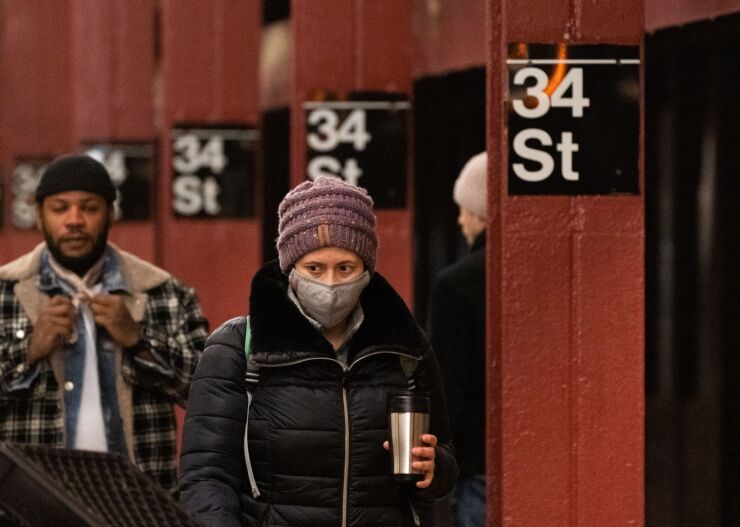Many issuers have decided not to disclose COVID-19 concerns until the pandemic begins to have a direct effect on their municipalities' financial stability.
Several issuers told The Bond Buyer Monday that a decision to make disclosure of the COVID-19 illness part of its bond documents is unlikely to spread to larger issuers unless localized outbreaks become a substantial threat to local finances.
Kenton Tsoodle, Oklahoma City’s assistant city manager, said if COVID-19 were to lead to a financial disruption, that would prompt disclosure. For example, if a large proportion of employees or key management in the city become sick or a reduction in products coming from China leads to less manufacturing in a city and a lower tax collection — then issuers would decide to disclose it to bondholders.
“You have to take in the total set of facts for your situation and make a decision if it’s something that is material that needs to be disclosed to investors," Tsoodle said.
COVID-19, an illness caused by a member of the coronavirus family, has spread rapidly globally, affecting economic markets and infecting over 600 people in the U.S.
Recently a public agency that manages Chicago’s convention center and two Illinois based health systems
Ben Watkins, director of the Florida Division of Bond Finance said issuers will have to assess the potential impact of COVID-19 and then determine if they have something meaningful to say.
"I don’t think it’s going to be something we see broadly across the marketplace," Watkins said.

Only people whose businesses are potentially directly impacted by COVID-19 might be thinking about what they need to say to the marketplace, Watkins said. Issuers affected may be airports, convention centers or those relying on tourism-based revenue among others.
“It’s difficult because what are you going to say other than there’s a potential impact for a slowdown in business?” Watkins said.
Richard Li, a public debt specialist for the city of Milwaukee, compared disclosing COVID-19 to disclosing a hurricane hitting localities on the Atlantic coast and said until an outbreak hits, outcomes are speculative.
“But until it happens, it’s all speculation and can happen in any city,” Li said. “Why do we have to talk about it? Does every city up and down the coast of the Atlantic talk about hurricanes?”
For the city of Milwaukee, 90% of its revenues are in property taxes and state aid so COVID-19 would not have a direct impact on its finances, Li said.
The city’s expenditures could be affected by the outbreak if the city is shutdown, Li said, referencing Italy’s recent shutdown of major cities such as Venice and Milan.
“No one is predicting that and it’s not really worth disclosing in an official statement at this point,” Li said.
Revenue related to tourism seems to be taking the biggest fall related to COVID-19, such as convention center revenue. Milwaukee is known for some of its summer festivals such as SummerFest at the end of June, but Li believes even if attendance is down, less revenue from it will not hurt the city’s finances and if they do it will be nominal.
SummerFest pays the city about $1 million for police activities and if attendance decreases, it could be less money for the city. However, that wouldn’t affect the city’s budget that much, Li said.
“For the city, I don’t see a huge economic impact, unless there is a local outbreak, Li said. “Since we’re not having one right now, there’s really nothing to disclose.”
However for cities with a high amount of tourism business, they should talk about COVID-19 risks in their disclosures, Li said.
Preparedness for outbreaks can be shown through a cities’ current economic condition and financial management, said Kendel Taylor, director of finance for Alexandria, Virginia.
“Localities are encouraged to have ample reserves to be able to withstand some economic adversity,” Taylor said. “Having a diversified tax base is also a form of preparedness so as tourism and travel decline or conferences and conventions are limited a locality has other revenue sources to rely upon.”
Current disclosure rules focus on financial obligations and events that reflect financial distress. COVID-19 can potentially cause financial distress, but is not in and of itself financial distress, Taylor said.
“A locality that issues short term debt to cover cash flow because of economic impacts brought about by the virus would likely need to disclose that but taking precautions to protect the public are not signs of financial distress,” Taylor said.





